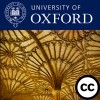Galen and the Ontology of Powers
The notion of a power, a dunamis, does a great deal of work in Galen. He believes that the basic functioning of the body is realized through four principal powers, of attraction, adhesion, alteration and excretion, although these come in a variety of different forms. These in turn are outgrowths of the fundamental physical powers of the basic qualities Hot, Cold, Wet and Dry. At the other end of the scale there are the psychological dunameis, such as the powers of calculation and of memory. As in Aristotle, the concept of a dunamis is tightly linked with that of an energeia; but these are not simply logical abstractions. Rather the natural energeiai are the basic functional activities of the animal body and its parts, and as health consists in proper functioning, so disease is defined as 'damage to one of the natural energeiai of the body'; and these activities are damaged when something interferes with its related dunamis. Thus dunamis is at the very heart of Galen's physiology and nosology; and it also plays a fundamental role in his pharmacology and theory of temperament. Here Hankinson tries to make sense of the apparently very different things Galen says regarding them. For example, he says that they do not inhabit our bodies as we do our houses; that is, presumably, they are not substantial or hypostasized. Equally he is perfectly clear that they are relational items: a power is a power for affecting something determinate in some determinate way. They are also said to be efficient causes. But it is not clear how these different strands fit together. In this paper Hankinson seeks to answer the basic question: What, for Galen, are powers, and how are they to be properly individuated?




